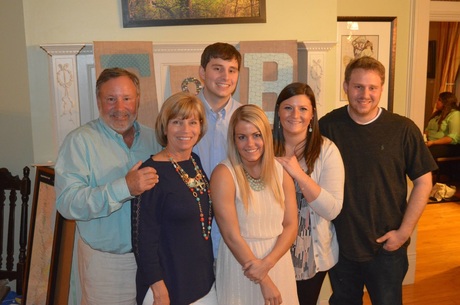What is Revilo Farms?
Located in the heart of the Delta, Revilo Farms has been in the Oliver Family for over 120 years. In the late 1890's the land in the Mississippi river floodplane was cleared by loggers before Andrew's grandfather, Cecil Oliver, came over by train to set up a commissary and a cotton gin in 1909.
The name Revilo came in 1919 when Cecil's wife, Virginia, was walking around the headquarters and found a stencil, used to paint the Oliver name on cotton trailers, lying upside down on the ground. Seen from her point of view it read Revilo. She liked the name and as most marriages go; happy wife, happy life. The name Revilo stuck and the Oliver's added Plantation after a few years. Drew
Over the years, the Oliver's have farmed up to 5,000 acres but recently downsized the operation to 2,000 acres to move into hydroponics farming. Revilo has seen many traditional crops including cotton, soybeans, corn and rice. The crops have been sold to multinational purchasers for export to foreign countries. Currently, Drew's non GMO food production goes to South Korea.
Our hydroponics piece of our operation is two 30' by 100' bays that house 1,600 tomato plants. Our particular hydroponic system is called a Dutch bucket system growing Indeterminate varieties of tomatoes. We take rainwater as our source of a nutrient carrier. Most hydroponic operations use ground water or municipal water as their source. We believe our use of rainwater is more environmentally sustainable way of using the resources available. Our goal is to provide the best quality product in the marketplace.
The name Revilo came in 1919 when Cecil's wife, Virginia, was walking around the headquarters and found a stencil, used to paint the Oliver name on cotton trailers, lying upside down on the ground. Seen from her point of view it read Revilo. She liked the name and as most marriages go; happy wife, happy life. The name Revilo stuck and the Oliver's added Plantation after a few years. Drew
Over the years, the Oliver's have farmed up to 5,000 acres but recently downsized the operation to 2,000 acres to move into hydroponics farming. Revilo has seen many traditional crops including cotton, soybeans, corn and rice. The crops have been sold to multinational purchasers for export to foreign countries. Currently, Drew's non GMO food production goes to South Korea.
Our hydroponics piece of our operation is two 30' by 100' bays that house 1,600 tomato plants. Our particular hydroponic system is called a Dutch bucket system growing Indeterminate varieties of tomatoes. We take rainwater as our source of a nutrient carrier. Most hydroponic operations use ground water or municipal water as their source. We believe our use of rainwater is more environmentally sustainable way of using the resources available. Our goal is to provide the best quality product in the marketplace.
Who is Drew Oliver?Drew Oliver is a third generation farmer on the land in Crittenden County, Arkansas. He started farming in 1983 as a co-owner of the farm with his Uncle when his father, Cecil Oliver, retired.
Prior to farming, Andrew acquired his Masters in Agronomy from the University of Arkansas and worked two years as an agronomist for a 26,000 acre land owner in Southeast Arkansas. While attending the University of Arkansas, he met his wife Pam and married in 1985 in Eureaka Springs, Arkansas. The Oliver's have three children, Chandler (28), Kelly (27) and Freeman (25), a dog named Jamaica (pictured left) and cat named Faylene. |
How did you become Hydroponics Farmers?On a trip to Turks and Caicos islands, while Pam was soaking up the sun, Drew spent time visiting the hydroponic farm on the island of Providenciales. He learned how the island was supplied with fresh produce and became interested in the concept.
Once back in the United States, Drew and Pam began researching the idea of becoming hypdroponics farmers. They continued to visit different operations both in the United States and the Caribbean and quickly realized that a locally grown crop can be a viable alternative to massed produced agriculture. |

